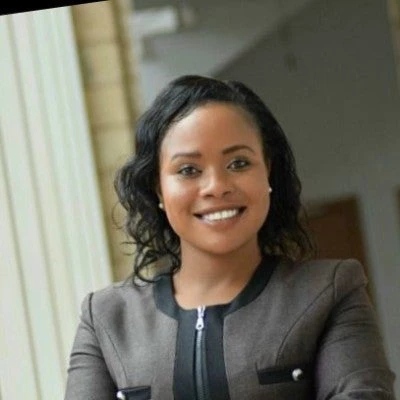 Digital literacy is key to alleviating unemployment challenges in Africa.
Digital literacy is key to alleviating unemployment challenges in Africa.
True to Barack Obama’s words, the internet is not a luxury; it is a necessity. The COVID-19 pandemic forced the fast-tracking of the digital age in Africa and globally. COVID-19 has seen economic activity in Sub-Saharan Africa (SSA) shrink by 5% per capita, plunging the region into its first recession in 25 years.
A World Bank "State of the Africa Region" event in April focused on COVID-19 and the future of work, emphasizing the role of technology in solving two of Africa’s pressing problems: the pandemic and unemployment. The relevance and timeliness of digital solutions for Africa’s pressing problems and developing a digital strategy for a country in Africa became the go-to case challenge for our team in the 2021 World Bank Group (WBG) Youth Summit.
The summit is an annual event that engages youth in exploring innovative ideas to tackle pressing development challenges. Through the case challenge sessions, teams of young change-makers get a chance to develop solutions based on cases drawn from real World Bank projects.
The diverse group, from technical backgrounds to interests and nationalities, were tasked with developing actionable components for a digital inclusion strategy for Digitopia, a fictional African country. Building on experiences from Kenya, Nigeria, Côte d'Ivoire and Azerbaijan, we proposed various solutions to common digital inclusion barriers, specific to rural and marginalized communities. These areas typically have low internet adoption, with the lowest rates among women and rural communities.
To achieve digital inclusion in Digitopia, we chose a two-step approach to solve two pre-identified barriers to digital inclusion:
- Accessibility, availability and affordability of technology
- A fragmented entrepreneurship support ecosystem
Barriers to accessibility, availability and affordability in Africa range from lack of access to electricity, power outages, high internet costs, and poor infrastructure. For example, the absence of power makes it harder for telecommunication companies to set up mobile networks, and the absence of mobile networks means fewer people buy mobile devices.
Tapping into renewable energy is one way to make power available to rural communities in Africa. Renewable Solar Energy Systems (RSES), for example, can easily be used to overcome power challenges that slow digital access. Renewable energy offers an affordable alternative to rural electrification; like the LUMOS and MTN partnership and Kenya’s M-KOPA solar pay-as-you-go service. Renewable energy has also enabled internet access through technologies such as internet balloons.
Even where digital technology is available, low uptake still poses a significant challenge. Digital illiteracy is a major barrier to digital technology use. In order to tackle the capacity gaps that widen the digital divide, it will be key to support the development of digital public goods, including training on harnessing digital media for socio-economic development. Kenya’s Ajira digital project is an example of how digital literacy can alleviate unemployment challenges. However, to succeed, it is critical to make digital training content available in native languages.
To support entrepreneurship in Africa, establishing digital platforms for business registration and digital tax filing systems is key. The COVID-19 pandemic has disrupted contracts due to missed tax deadlines associated and the lack of digital tax filing systems. It is clear that supporting digital innovations such as M-PESA and Esoko fosters a more robust entrepreneurship ecosystem.
It’s clear that digitalization has the potential to transform societies, with benefits for all sectors in Africa. Organizing the 2021 World Bank Youth Summit in an online environment is solid proof of how digitalization can promote inclusion. However, for Africa, success ultimately depends on establishing proper policy, legal and institutional frameworks, and reducing the digital divide through collaboration and partnership among various stakeholders.








Join the Conversation